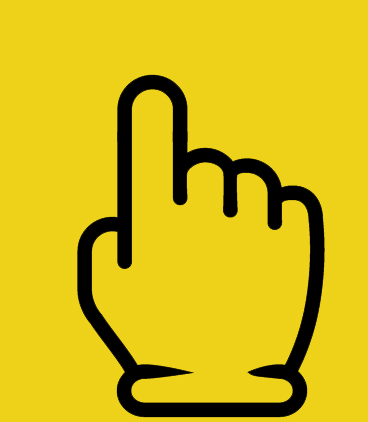
In today's competitive job market, an interview involves more than just having the right qualifications and impressive resumé. It's about creating an emotional connection with the interviewer and leaving a lasting impression. One crucial way to establish this connection is through effective eye contact. The importance of making eye contact during an interview can't be overstated; it's a simple yet powerful tool that can signify confidence, attentiveness, and sincerity. So, how do you master the art of making eye contact in an interview setting? Below are some tips that will help you excel in this important aspect of nonverbal communication.
Why Is Eye Contact Important | Importance of Eye Contact in Job Interview
Before delving into the tips, it's essential to understand why eye contact is crucial during an interview. Eye contact helps in:
1. Building Trust: Eye contact is a powerful way to build trust with your interviewer. When you make consistent eye contact, you come across as open and sincere, making it easier for the interviewer to believe in your qualifications and trust your intentions. Trust is the foundation for any professional relationship, and establishing it from the outset can set the tone for a successful interview. When people dodge eye contact, it often generates suspicion and raises questions about their credibility. In contrast, reliable eye contact speaks volumes about your confidence and authenticity, even before you answer any questions.
2. Showing Confidence: Confidence is a quality that every employer seeks in their prospective employees. Making eye contact indicates that you are self-assured and secure in your abilities. When you meet your interviewer's gaze, you silently communicate that you are focused and not easily intimidated, thereby leaving a lasting impression. However, it's important to balance this with a sense of humility; otherwise, confidence can easily be mistaken for arrogance. Practicing eye contact can help you find this balance, demonstrating that you're not only competent but also genuinely interested in the role and the conversation.
Also, read our dedicated article on How to Be Confident in Job Interviews
3. Enhancing Communication: Effective eye contact adds another layer to your verbal responses, making your communication more dynamic and engaging. As you maintain eye contact, you're better positioned to pick up on the interviewer's subtle cues, be it a nod, smile, or a change in expression. These cues can offer you invaluable insights into how your answers are being received, enabling you to adjust your responses and conversation style as needed. Also, eye contact keeps distractions at bay, allowing both you and the interviewer to concentrate better on the discussion at hand.
4. Expressing Attentiveness: Attentiveness is another attribute that interviewers appreciate. Eye contact shows that you are fully engaged in the conversation and are actively listening. It signals to the interviewer that you are not just physically present but also mentally invested in the ongoing interaction. This level of attentiveness is often reciprocated, leading to a more fruitful and meaningful conversation. Demonstrating that you can listen as well as you speak can set you apart from other candidates who might be preoccupied or unfocused during the interview.
5. Creating Emotional Connection: Interviews aren't just about showcasing your skills and experience; they're also about connecting with your potential future colleagues or supervisors. Eye contact helps create a subtle emotional connection during your conversation. When you look someone in the eye while speaking or listening, you're doing more than just following social norms; you're saying, "I see you, I'm focused on this interaction, and I'm considering your words carefully." This makes the interaction more personable, helping to elevate you from being just another applicant to someone the interviewer can envision as a part of their team.
Tips for Making Effective Eye Contact During an Interview
1. Practice Beforehand
To alleviate any anxiety or awkwardness, it's essential to practice making eye contact before the actual interview. Engage a friend or family member in a mock interview setup and request their honest feedback. Focus on maintaining a natural and relaxed eye contact while answering questions. This kind of rehearsal can help you identify any discomfort or excessive blinking you might not have been aware of. Moreover, practicing beforehand can not only ease your nerves but also make you more attuned to natural pauses in conversation, where eye contact can be particularly impactful.
2. Start Strong
The first impression often sets the tone for the entire interview. When you walk into the room, establish eye contact immediately as you offer a handshake. The initial moments are crucial for setting a positive and confident tone for the rest of the conversation. A lack of eye contact at this stage might signal nervousness or disinterest, whereas assertive yet friendly eye contact can establish you as a confident and engaged candidate right from the get-go.
3. Don’t Stare
Maintaining eye contact doesn’t mean staring down your interviewer. Intense, unbroken eye contact can make the other person feel uncomfortable or even intimidated. Aim to maintain eye contact for about 50-60% of the conversation to establish a connection without causing discomfort. Use the 'Three-Second Rule' as a guide: hold eye contact for about three seconds, look away briefly, then re-establish contact. This rhythm will make the interaction feel more natural and less like a staring contest.
4. Use the Triangle Technique
The Triangle Technique is a useful trick to keep eye contact from turning into an unsettling stare. Imagine a triangle with its points at the interviewer's two eyes and mouth. As you speak or listen, subtly shift your gaze between these three points. This technique not only keeps your eye contact dynamic but also allows you to observe the interviewer's facial expressions more completely, providing valuable cues on how your responses are being received.
5. Be Mindful of Cultural Differences
When interviewing in a multicultural setting or with people from different cultural backgrounds, it's important to be aware of differing norms regarding eye contact. In some cultures, strong eye contact can be interpreted as rude or aggressive, while in others, it's a sign of sincerity and attentiveness. Doing some preliminary research or consulting with someone knowledgeable about the specific cultural nuances can guide you on what level of eye contact is appropriate.
6. Note the Interviewer’s Body Language
The interviewer's body language can provide crucial cues on how you should adjust your own. If you notice the interviewer maintaining steady eye contact, that’s a signal for you to continue doing the same. If they frequently break eye contact or appear uncomfortable, consider reducing the intensity of your gaze. Paying attention to these cues allows you to adapt your behavior in real time, ensuring a more comfortable and effective interaction for both parties.
7. Take Breaks
While eye contact is important, it's also okay to break it momentarily. This could be when you're gathering your thoughts, considering your next response, or simply pausing for effect. Strategic breaks in eye contact can add a layer of sincerity and thoughtfulness to your responses. They can make the conversation feel more organic and less rehearsed, signaling to the interviewer that you are genuinely engaged in the discussion.
8. Show Expressive Eyes
Eyes are often called "windows to the soul" for good reason. They can express a wide range of emotions without saying a word. Utilize your eyes to show curiosity, enthusiasm, or even empathy during the interview. For instance, widened eyes can denote interest, while a more relaxed gaze can convey confidence or understanding. These subtle cues can complement your verbal responses, adding richness to the conversation.
9. Sync with Speech
Your eyes can act as powerful tools to emphasize what you're saying. For instance, when discussing significant accomplishments or sharing ideas you’re passionate about, amplify your words with sustained eye contact. This adds a layer of emphasis and engagement to your speech, reinforcing the weight and importance of your words.
10. Maintain Eye Contact When Listening
Finally, don't forget that eye contact is equally crucial when you're listening. This shows the interviewer that you are fully engaged and interested in what they have to say. By maintaining eye contact while listening, you convey respect and attentiveness, further building rapport and trust, which can be pivotal in the final evaluation.
Bonus TIPS TO CRACK JOB INTERVIEWS
Ready to land your dream job? Look no further than Interview Expert. Our experienced professionals provide personalized interview coaching and interview preparation services tailored to your career goals. From commonly asked questions to effective interview techniques, we'll equip you with the skills and confidence to excel. Don't leave your success to chance – choose Interview Expert today for interview preparation services and make your next interview a winning experience!
Strategies for Overcoming Eye Contact Anxiety During Interviews
If you find it challenging to maintain eye contact because of nervousness or anxiety, consider these additional tips:
1. Focus on One Eye: Some find it easier to focus on one eye at a time rather than switching between both.
2. Use Nods and Smiles: Complement your eye contact with nods and smiles to portray enthusiasm and engagement.
3. Practice with a Video: Record yourself in a mock interview and analyze your eye contact habits.
Conclusion On - Tips for Making Eye Contact During an Interview:
The importance of making eye contact during an interview cannot be understated as it's an integral part of effective communication and emotional connection. Whether you are a recent graduate or a seasoned professional, mastering the art of making eye contact can significantly improve your chances of landing your dream job. So, invest time in honing this subtle yet powerful skill and stand out in your next job interview.

